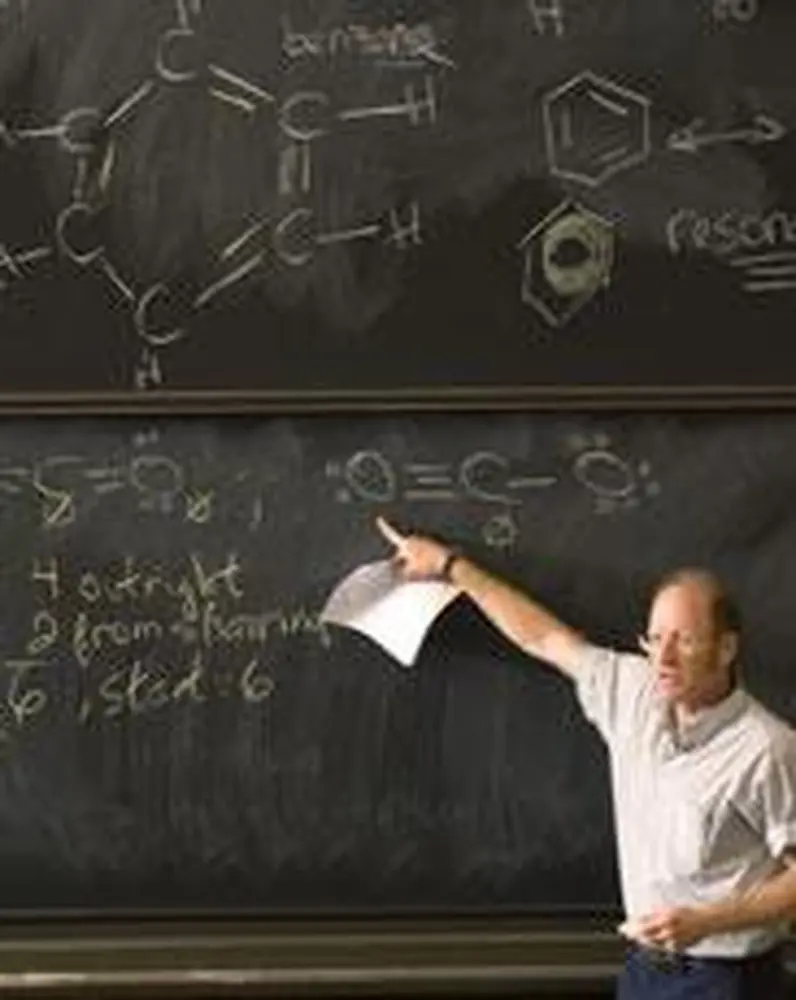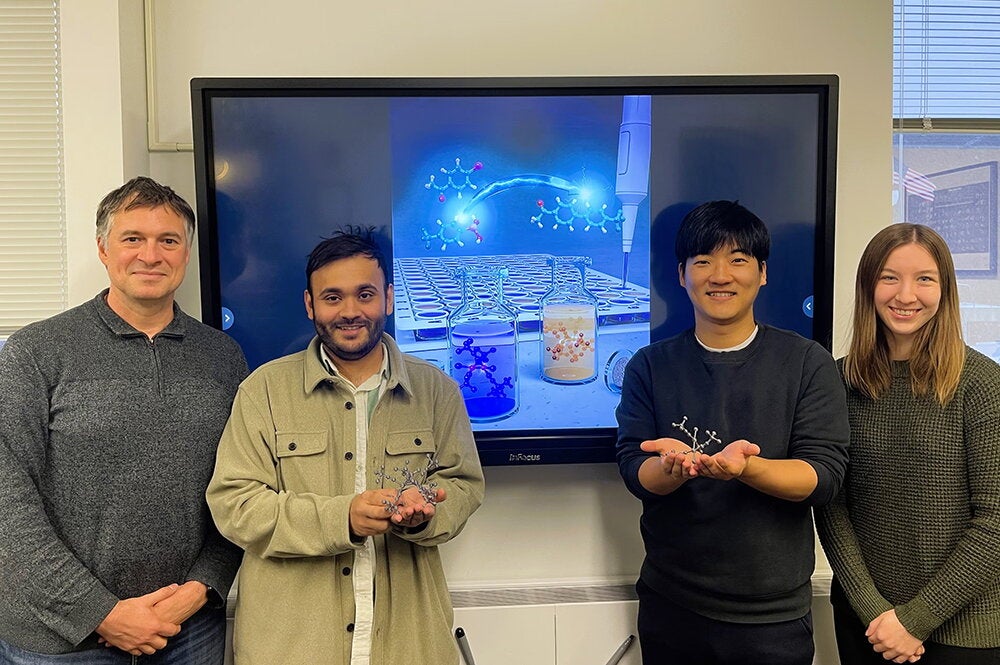

The University of Illinois at Urbana-Champaign has been named the recipient of a $5 million grant to establish and support a program to improve achievement in chemical sciences and computational literacy among students in rural Illinois high schools.
The National Science Foundation grant will be used to establish the Institute for Chemistry Literacy and Computational Sciences in secondary schools in Illinois. The institute will train 120 high school chemistry teachers to become teacher-leaders who can, in turn, teach and lead based on the latest research and use computational methods of visualization and communication.
"The preparation of teachers, especially in disciplines that affect national competitiveness, is extremely important," says Richard Herman, the chancellor of the Urbana campus. "We are delighted to play a leading role in this important work."
The Department of Chemistry in LAS will be one of the three U. of I. units involved in developing the institute, with the others being the College of Medicine and the National Center for Supercomputing Applications. The A-C Central Community Unit School District 262 in Chandlerville, Ill., and the Regional Office of Education in Lincoln, Ill., also will participate in developing the institute.
"Science literacy is vital for the young people, in fact the entire state, of Illinois," says Paul Kelter, a professor in the Department of Chemistry and a University Distinguished Teacher/Scholar. "During these upcoming five years, the program will impact well over 18,000 high school students, especially those who want to pursue a career in the life sciences or medicine. Chemistry is the key to these fields," said Kelter, who is one of five co-principal investigators on the grant.
The institute has four goals for the next five years: strengthen rural high school teachers' and students' understanding of chemistry within the context of 21st-century scientific research; increase teachers' use of, and comfort with, computational and visualization tools in their teaching; establish a group of high school and university-level faculty teacher-leaders who will be advocates for excellence in science education; and promote institutional change in university and school district partners.
The institute program will offer two-week residential sessions for three consecutive summers; extensive academic-year online support; two academic-year regional meetings; and academic-year online interaction among partners and participants. The first group of teachers will start their training in the summer of 2007.
The institute will create an online community of participants and project staff by means of NCSA's Access Grid communications technology and Moodle, a course-development tool. These will foster comfortable, mutually beneficial interchanges about chemistry content and pedagogy; chemistry understanding informed by the latest scientific research; and leadership development for teachers at various levels of their careers.
The project will employ a randomized control trial research/evaluation design intended to contribute to research on improving teacher quality.
The supporting partners of the grant include four rural Illinois regional offices of education, in northwest, west central, south central, and far southern Illinois; the Illinois Institute for Rural Affairs; the Illinois Petroleum Resources Board; the Illinois Science Teachers Association; the National Center for Rural Health Professions; the Three Rivers Educational Partnership; the National Board Resource Center at Illinois State University; and Argonne National Laboratory.


